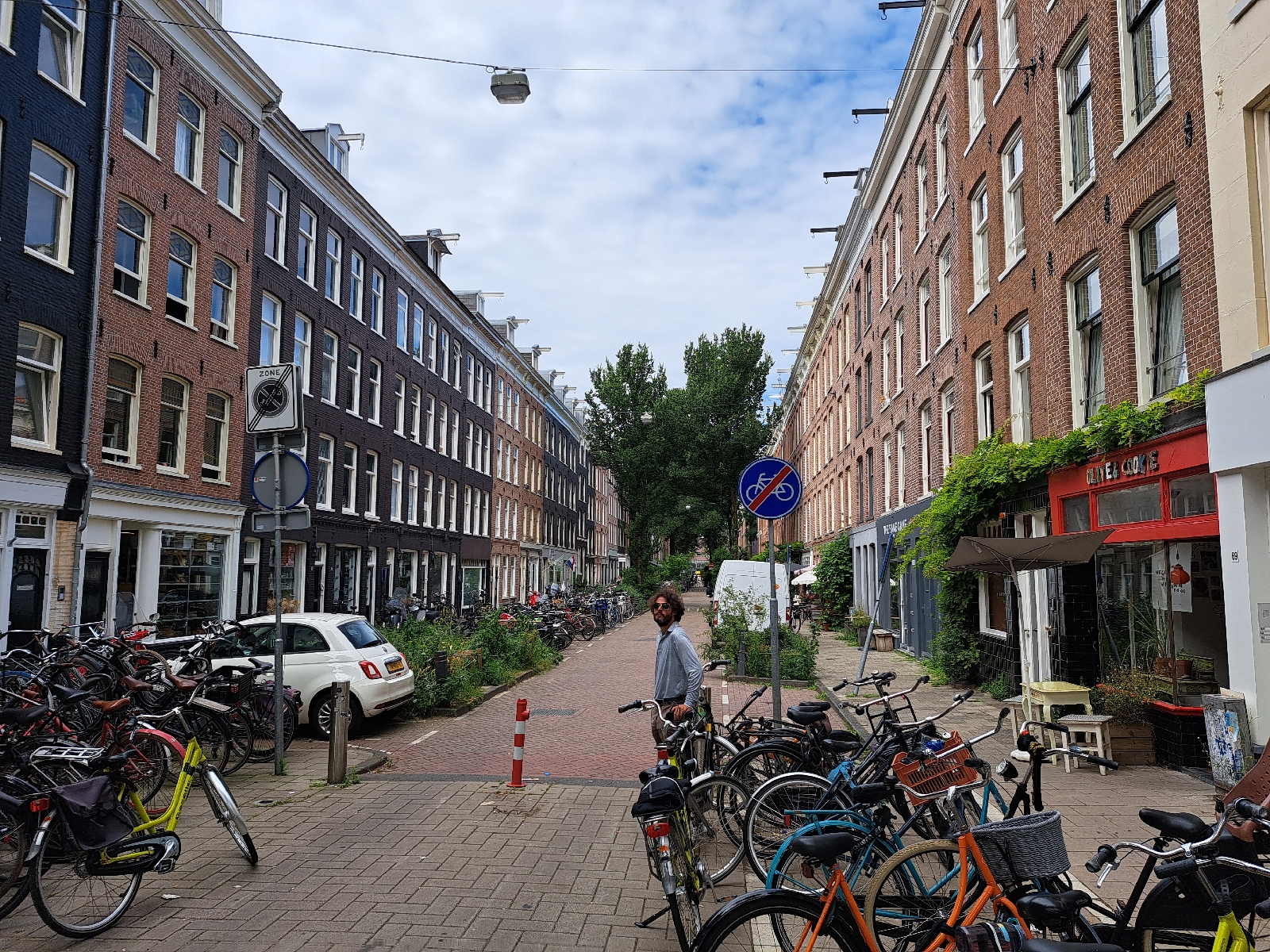European Cyclist Federation (Day 22 Netherlands)
We met with the board chair of the European Cyclists' Federation, Henk Swarttouw, to learn more about how bicycling advancements work at the EU level. While the Dutch approach to cycling as a normal part of transportation, rather than viewing it as an "alternative" transportation, exists in their own forms and histories in other countries of the EU (such as parts of Denmark and Germany), expanding infrastructure to increase the utility and ease of cycling varies widely across the union. When a country or region within a country wants advice on network design, they sometimes turn to the European Cyclists' Federation for guidance.
The European Cyclists' Federation also works as advocates at various levels. At the EU level, the ECF works to improve cycling across all of the union. For example, they try for policy to ensure that biking and rail connect networks and work together. They also work on tax policy that would categorize bikes as basic needs. When it comes to existing policy, they consult on how to access EU funding for improvements such as national-level cycling strategies. Local chapters raise context-specific issues and work within each country.
Henk had two top suggestions for US advocates of everyday cycling.
#1: Increase the perception of SAFETY.
Legislate such that car drivers are legally at fault if they hit (the more vulnerable) bikers or walkers. Also, lower speed limits by law and by DESIGN. Infrastructure designed to slow car traffic and increase the flow of bikes makes the roadways safer.
#2: Reduce DIFFICULTIES.
Things such as hills, wind, and distance exist no matter how great the infrastructure. Make sure people have access to the right type of bicycles for them. For many, whether due to ability or not, an e-bike acts as a trip enabler and/or extender rather than anything to do with speed. Recent studies show that e-bike users take more and longer trips witht their bikes. Policies, such as subsidies (don't subsidize fossil fuels, do subsidize electric bikes), could shift to support the switch to the more sustainable option of an e-bike. The same goes with policies for commuter benefits--reward people for walking, biking, and/or taking transit rather than paying for their car parking.
One of the biggest takeaways of this entire trip boils down to this: Making the infrastructure changes needed for safe and easy cycling is simple. Getting the political will to enact change is the challenge.
Next up: Off to Amsterdam
Random pic of the day: This plaque about Mozart once staying in Utrecht.





Comments
Post a Comment